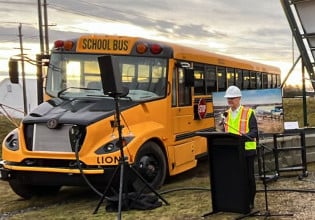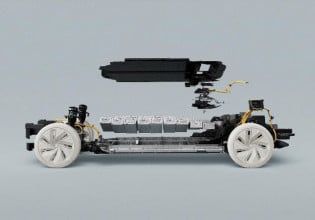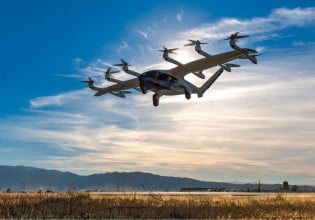Tevva Inks Lithium-ion Battery Management Partnership for its Electric Trucks
British electric truck maker Tevva and Texas-based battery recycling provider Ecobat recently announced a partnership to repair and repurpose used lithium-ion batteries.
Ecobat and Tevva have announced a 12-month pilot project to repair and repurpose old or damaged lithium-ion batteries from Tevva’s line of medium-duty electric trucks.
First-life Battery Management
The first phase will focus on first-life battery management for Tevva’s new 7.5T truck model (with “T” standing for metric tons). Ecobat will ensure Tevva’s batteries are diagnosed and repaired if issues arise with the vehicle. Beyond that, the partnership includes the possibility of expanding into energy storage and recycling projects once the one-year term ends.

Ecobat provides a range of end-of-life services for old lead and lithium-ion batteries. Image used courtesy of Tevva/Ecobat
The move comes as Tevva recently kickstarted mass production for its 7.5T battery-electric truck at its London-based manufacturing facility. Designed for last-mile and urban delivery customers, the 7.5T provides up to 140 miles of range on a single charge via a 105-kilowatt-hour battery.

Tevva’s new 7.5T electric truck. Image used courtesy of Tevva
Ecobat's deal with Tevva brings an opportunity to expand its lithium-ion recycling footprint. The Dallas-headquartered company processes 120 million used batteries per year, operating over a dozen smelting facilities, three lithium recycling facilities, a fleet of collection trucks, and 65,000 battery collection points, serving a base of 15,000 customers.
Historically, Ecobat focused on lead battery recycling and production but has since expanded into the lithium-ion battery market to capitalize on demand from EV manufacturers. In 2021, the company started disassembling automotive lithium batteries for second-use cells at its facility in the U.K.’s West Midlands region. The same year, it acquired a leading EV battery recycling operator, Germany-based Promesa, adding crushing/sorting capacity and securing its role as a dominant market leader.
Ecobat says it’s the only European provider of fully integrated battery recycling services serving the first three stages of the process (collection, discharge/diagnostics and dismantling, and crushing/sorting).

This chart provides an overview of Ecobat’s lithium-ion recycling stages. Image used courtesy of Ecobat
Ecobat is currently scaling its collection and production capacity, stating in December that its U.K. facility would manage up to 500 metric tons of stage-one recycling in 2022. Its capacity is expected to top 10,000 metric tons annually by the end of 2023, then 20,000 by 2024. Meanwhile, its plants in Germany and France are set to surpass 30,000 metric tons annually by next year.
The company announced last month it would expand its production capacity to the U.S., building its first North American lithium-ion battery recycling facility in Arizona. Beginning in the third quarter of this year, the plant is expected to initially produce 10,000 tons of recycled material per year, then scale up according to demand.
EV Manufacturers Invest in Battery Recycling
Tevva isn’t the only EV manufacturer working to secure a circular economy for its battery supply chain. Several car giants are exploring or already implementing battery recycling and second-life projects.
Last year, Volvo and Ford launched a battery recycling program in California with market-leading Redwood Materials. Toyota also has a partnership with Redwood for end-of-life battery projects. Meanwhile, GM recently made a strategic investment in Canada-based Lithion Recycling, which will work with the Detroit auto giant to validate the use of recovered materials for new battery production.

Tevva recently launched its 7.5T electric truck. Image used courtesy of Tevva
Tevva’s Ecobat partnership is an early step in solidifying its circular battery supply chain amid growing interest in its electric trucks. The company expects up to 1,000 vehicle sales this year and plans to open a second European factory to increase its annual capacity to 6,000 units by 2024.
Tevva also plans to introduce a hydrogen-electric model of the 7.5T, featuring a hydrogen extender to boost range up to 354 miles. As EE Power covered last week, a prototype of the hydrogen 7.5T recently achieved a range-testing milestone of 350 miles on a single charge.






